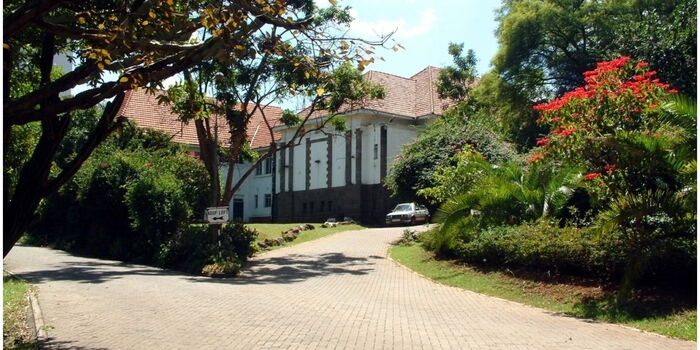
The Nairobi County Government has shut down the historic Freemasons Church located in the Central Business District (CBD) over unpaid land rate arrears amounting to Ksh19 million. This enforcement action is part of an intensified campaign by the county to recover billions in unpaid levies from defaulting property owners.
The Freemasons Church, a landmark property along Nyerere Road, has reportedly defaulted on its land rate obligations for several years. County authorities confirmed that despite repeated notices, the church management failed to remit the required payments. This prompted a legal enforcement order, leading to the closure of the premises.
According to the Nairobi City County Revenue Department, the property had accrued the Ksh19 million debt through consistent non-compliance. The land, located in one of Nairobi’s prime commercial zones, attracts high annual land rates under the city’s valuation framework.
The Nairobi County Government acted under the authority of the Nairobi City County Rating Act and related legal instruments, which empower counties to enforce rate collections through asset seizures or closures. A court order was obtained to carry out the closure after negotiations with the property owners reportedly failed.
The County Director of Revenue stated:
“We followed all due legal processes. We issued reminders, extended deadlines, and offered settlement plans. Unfortunately, none were acted upon. The law is clear—no exemptions can be made based on status, ownership, or history.”
The Freemasons Church is one of Nairobi’s most iconic colonial-era structures. Constructed in the early 1900s, it has long been associated with the secretive Freemasonry movement in Kenya. The building’s distinct architecture and longstanding presence make it a unique heritage site within the CBD.
However, county officials have clarified that this enforcement action has nothing to do with the nature or identity of the institution. It is a matter of fiscal compliance, with the county emphasizing that every property owner must pay their dues regardless of background.
The closure has triggered mixed reactions across the city. Some Nairobi residents support the move, praising the county’s firm stance against powerful or historically significant defaulters. Others question the optics of shutting down a religious-affiliated property, even if symbolic.
Despite the debate, financial experts and legal analysts agree that Nairobi’s rising infrastructure and service delivery costs demand better enforcement of property taxes and levies.
The Freemasons Church may remain closed indefinitely unless the full amount or a court-ordered settlement is paid. If no resolution is reached, the county could proceed with auctioning the property to recover the arrears.
Legal options for the property owners include:
- Applying for a court injunction to halt further enforcement,
- Negotiating a structured payment plan with the county,
- Filing for a judicial review of the enforcement process.
However, unless part of the arrears is cleared, county officials have stated that enforcement measures will continue as part of a wider crackdown.
The Freemasons Church is one among many properties being targeted in Nairobi’s aggressive revenue recovery strategy. Other commercial buildings, hotels, and institutions have also been issued notices over similar arrears.
The county has launched several initiatives to boost compliance:
- Introduction of digital land rate invoicing,
- GIS mapping of properties,
- Public awareness campaigns,
- Legal prosecution of persistent defaulters.
This landmark action sends a powerful message that Nairobi County is serious about enforcing land rate compliance to fund essential services.


